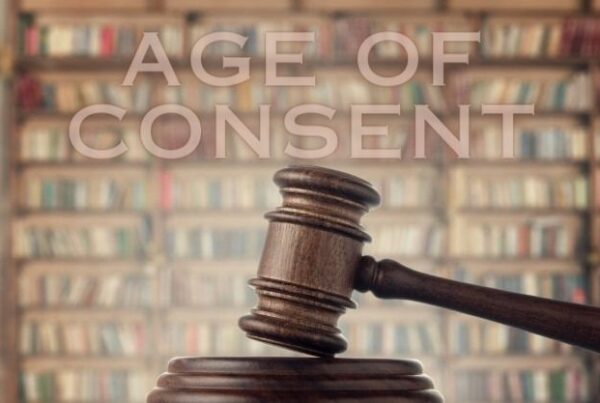Are Non compete clauses in agreement a restrait in trade as defined under the Contract Act and hence void ab inition ?
A non-compete clause is generally found in an employment agreement where the employee undertakes and gives his acceptance to the condition of the employer that during the course of the employment or even after the employee leaves the services/job of the employer, he will not engage in any work directly or indirectly in competition with the employer or be employed by the competitor of the employer. The Non-compete clause finds place under the agreements and contracts throughout the globe.
Section 27 of the Indian Contract Act-1872 provides that ”Every agreement by which anyone is restrained from exercising a lawful profession or trade or business of any kind, is to that extent void”.
Exception : One who sells goodwill of a business with a buyer to refrain from carrying on a similar business within specified local limits so long as the buyer, or any person deriving title to the goodwill from him, carries on a like business therein provided that such limits appear to the court reasonable, regard being had to the nature of business.
Indian law is therefore very clear and strict on this point that any such non compete agreement shall not be binding on the parties and the same shall be null and void. Indian courts have also consistently refused to enforce post termination non compete clauses in employment contracts as “restraint of trade” is impermissible under section 27 of the Indian Contract Act-1872, and have held them as void and against the public policy because of their potential to deprive an individual of his or her fundamental right to earn a living.
The Supreme Court of India, while dealing with such a contractual issue in Superintendence Company of India (P) Ltd. v. Sh. Krishan Murgai, raised the question that whether a post-service restrictive covenant would fall within the mischief of section 27 of the Contract Act. The court held that a contract, which had for its object a restraint of trade, was prima facie void. Even the Delhi High Court in Foods Ltd. and Others v. Bharat Coca-cola Holdings Pvt. Ltd. & others observed, “It is well settled that such post termination restraint, under Indian Law, is in violation of Section 27 of the Contract Act. Such contracts are unenforceable, void and against the public policy. What is prohibited by law cannot be permitted by Court’s injunction.”The judgment of the Supreme Court in Percept D’Mark (India) Pvt. Ltd. v. Zaheer Khan and Anr. sheds some light on the legality of such clauses. The Apex Court observed,”Under Section 27 of the Contract Act (a) a restrictive covenant extending beyond the term of the contract is void and not enforceable. (b) The doctrine of restraint of trade does not apply during the continuance of the contract for employment and it applied only when the contract comes to an end. (c) As held by this Court in Gujarat Bottling v. Coca Cola (supra), this doctrine is not confined only to contracts of employment, but is also applicable to all other contracts.”
However considering the changing circumstances and the need for confidentiality and integrity, the judiciary has inclined its view towards giving some regard to the non compete agreements. In the case of ‘Niranjan Shankar Golikari Vs the Century Spinning and Manufacturing Company Ltd.’ , the Hon’ble Supreme Court observed that-“restraints or negative covenants in the appointment or contracts may be valid if they are reasonable”. Further in one case – V.F.S. global services Pvt. Ltd Vs Mr. Suprit Roy, 2008(2) Bom CR 446, the Bombay High court established the principle that a restraint on the use of trade secrets during or after the cessation of employment does not tantamount to a “restraint on trade” under section 27 of the Act and therefore can be enforceable under certain circumstances.
It may therefore be summarized that a non-compete may be enforceable in the following circumstances :
1. The restriction is reasonable to protect the interests of the company particularly if the company had spent considerable amount in training, secrets of know-how of specialised processes were divulged to employee on the guarantee that those processes would be exclusively used for the business of the company.
2. Clause does not prohibit the employee from seeking similar employment from any other Company after the contractual period was over.
3. The covenant in question should be reasonable in space and time and to the extent necessary to protect the employer’s right of property and
4. The injunction to enforce a negative stipulation can only be granted for the legitimate purpose of safeguarding the trade secrets of the employer.
An employer is not entitled to protect himself against competition on the part of an employee after the employment has ceased. Employee if prevented from being employed in a similar capacity elsewhere, he would be forced to idleness or that such a restraint would compel the employee to go back to the company which would indirectly result in specific performance of the contract of personal service. This principle is based on the footing that an employer has no legitimate interest in preventing an employee after he leaves his service from entering the service of a competitor merely on the ground that he is a competitor.
Reference:
Superintendence Company of India (P) Ltd. v. Sh. Krishan Murgai 1980 AIR 1717, 1980 SCR (3)1278
Foods Ltd. and Others v. Bharat Coca-cola Holdings Pvt. Ltd 1999 VAD Delhi 93, 81 (1999) DLT 122, 1999 (50) DRJ 656, ILR 1999 Delhi 193, (1999) IILLJ 1140 Del
Percept D’Mark (India) Pvt. Ltd. v. Zaheer Khan and Anr 2004 (2) BomCR 47, (2006) 5 CompLJ 271 Bom
Niranjan Shankar Golikari Vs the Century Spinning and Manufacturing Company Ltd 1967 AIR 1098, 1967 SCR (2) 378
V.F.S. global services Pvt. Ltd Vs Mr. Suprit Roy 2008 (2) BomCR 446, 2007 (2) CTLJ 423 Bom




